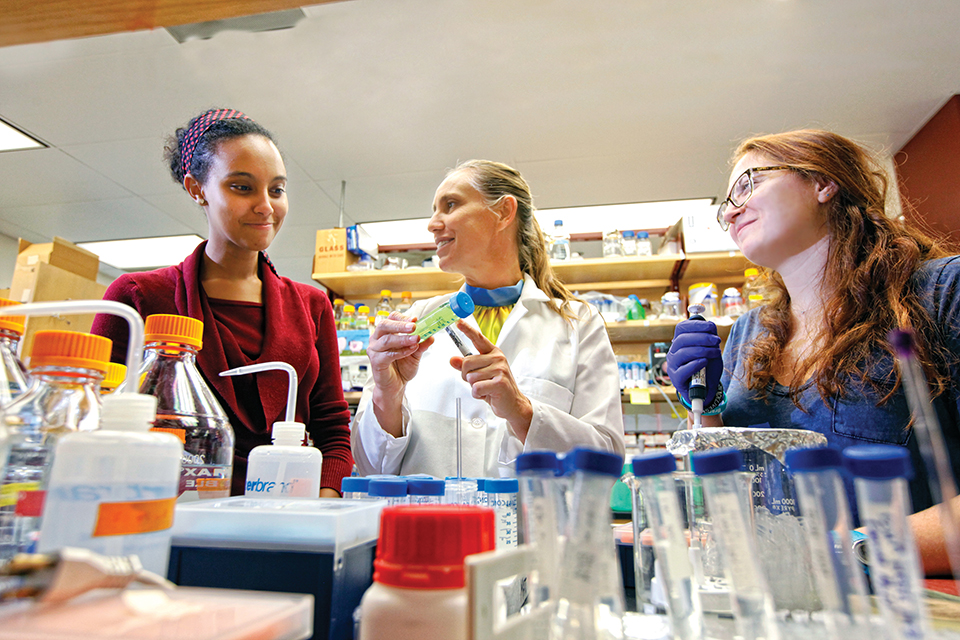
Photo Credit: Mike Lovett
Biochemistry lies at the center of the three "hard" sciences: physics, chemistry and biology. Drawing from principles based in physics and chemistry that govern the behavior of molecules, biochemists seek to understand how these principles underlie the workings of living cells.
Biochemistry Faculty
The Biochemistry Department faculty form the core of a vibrant Biochemistry research and teaching community at Brandeis. Included in this group are three members of the American Academy of Arts and Sciences, an Investigator of the Howard Hughes Medical Institute, and two members of the U.S. National Academy of Sciences.
The Biochemistry Department and affiliated faculty from the Physics, Chemistry and Biology Departments form the Biochemistry and Biophysics training faculty. Biochemistry and Biophysics graduate students select rotation, thesis, and dissertation advisors from this group of faculty.
Find Biochemistry & Biophysics Training facultyGraduate Program
Graduate students can earn a Master of Science (MS) or Doctor of Philosophy (PhD) degrees through the Biochemistry and Biophysics graduate program.
Undergraduate Program
Two features of Biochemistry as a discipline influence our undergraduate curriculum. First, biochemistry finds value in studying the isolated parts of biological machines as a means of understanding those more complicated machines themselves. Second, as a relatively young science, biochemistry is a moving target. While the fundamental physical-chemical principles underlying macromolecular behavior are timeless, the biochemical manifestations of these principles continue to change on the rapidly expanding edge of discovery. Our curriculum is designed to track this change and to train students to engage with future issues in life-science, even ones that do not currently exist.
Brandeis offers both a Bachelor of Science and a four-year combined BS/MS degree in Biochemistry.